What You Need To Know for 2024
- December 4, 2023
- Knowledge Base
- 0 Comments

I’m willing to bet that you, as a marketer, you have experience with email marketing and SEO. If you’re a beginner, you’ve at least heard of both strategies and maybe done a bit of research into them.
Regardless of your level of experience, you might still be wondering which is a more worthwhile investment for your business. In this post, I’ll discuss all things email marketing vs. SEO, from how marketers currently use both strategies to making them face off in the ring against key marketing goals.
Table of Contents
A Quick Refresher on Email Marketing and SEO
Email marketing is sending content to a list of subscribers via email, like weekly update newsletters, promotional emails, or even a Happy Birthday message. It’s a flexible and cost-effective way to share messages with your audience.
The most important email marketing metrics are clickthrough rate (CTR), open rate, and leads/conversions from email.
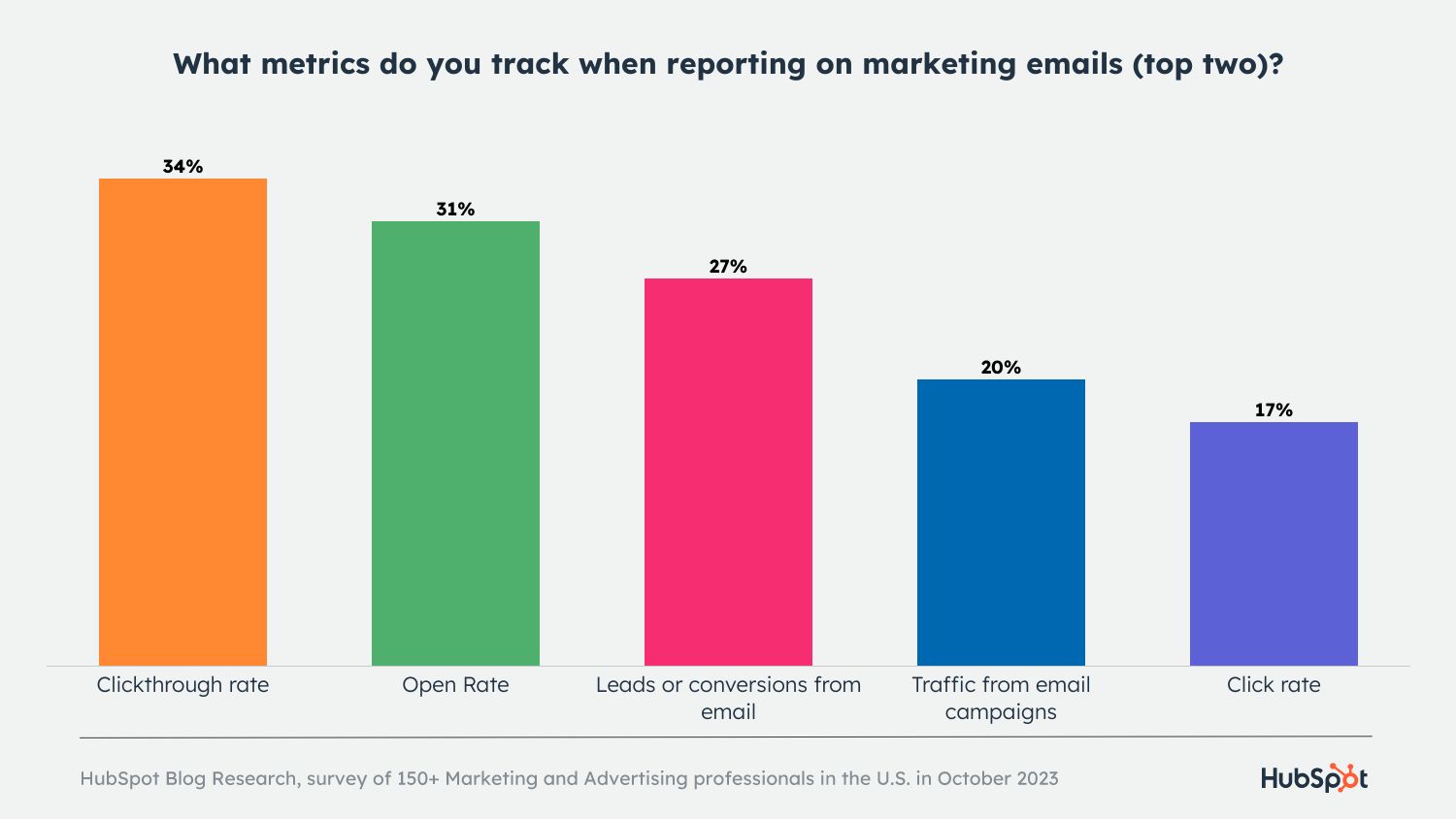
Search Engine Optimization (SEO) is how you make your website visible in organic search results. To simplify it, it’s how I quickly find a step-by-step guide to replacing the batteries in my smoke detector when it starts its annoying pinging.
Key building blocks to a successful SEO strategy are keyword research, creating high-quality, helpful content, and ensuring your website is crawlable. The most important metrics web analysts track are sales, leads, and conversions.
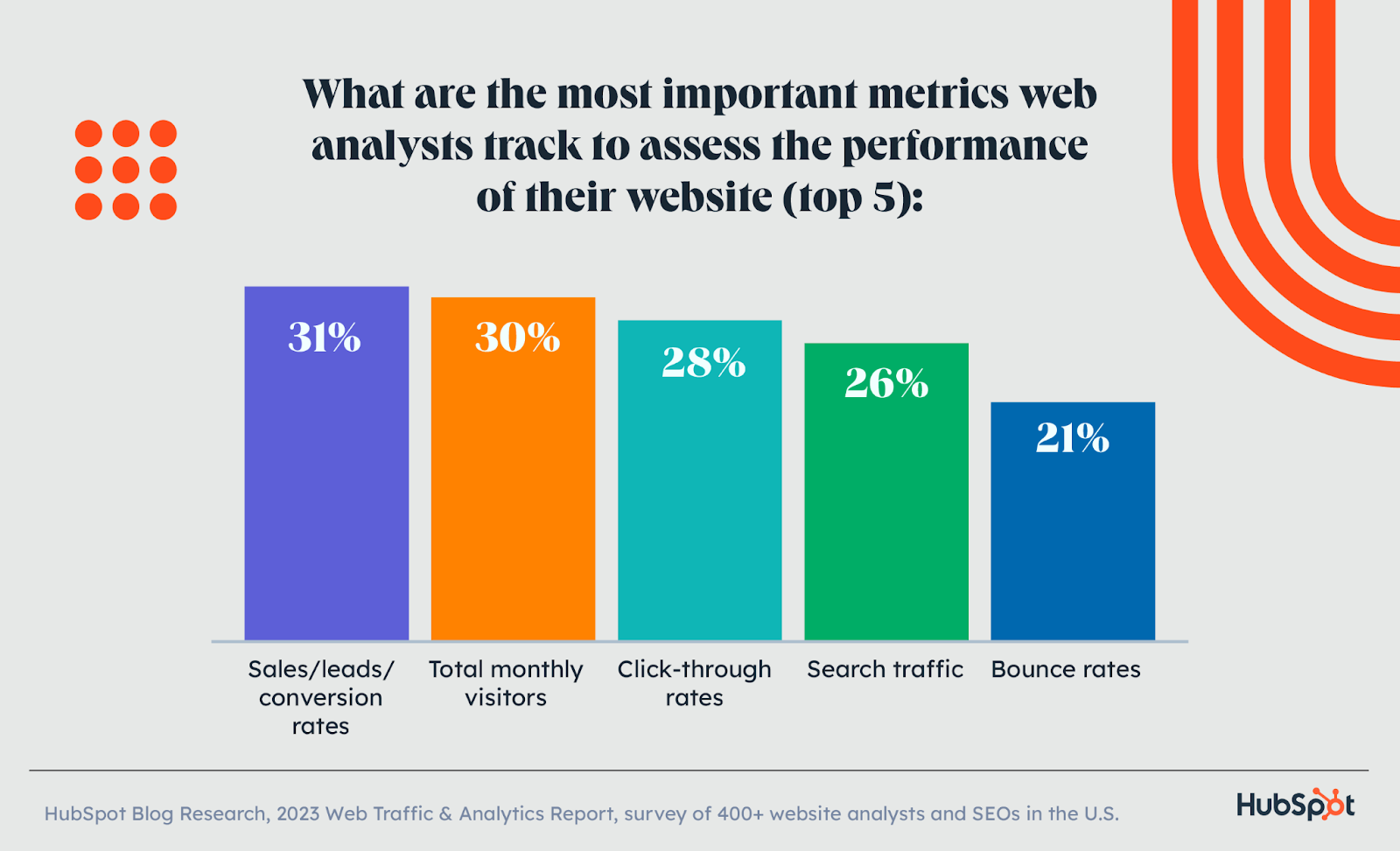
Before pitting them against each other, let’s go over how marketers are using both practices.
Email Marketing Vs. SEO – What are marketers saying?
Our 2024 Marketing Strategy & Trends Report found that email marketing is the most leveraged channel among marketers (33%), followed closely by website/blog/SEO (32%).
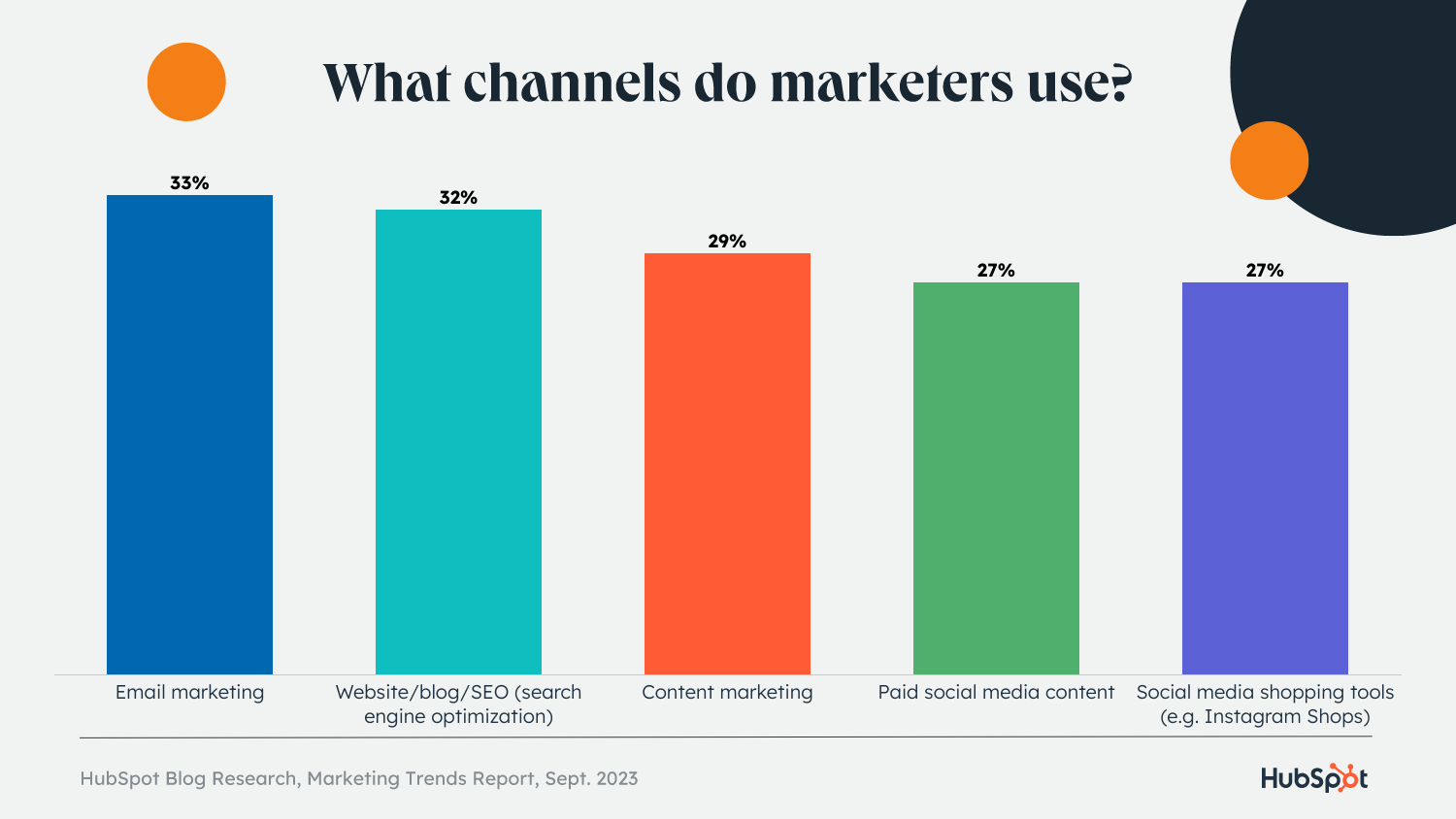
Despite email marketing being more popular, SEO offers the highest ROI, and email marketing rounds up second place.
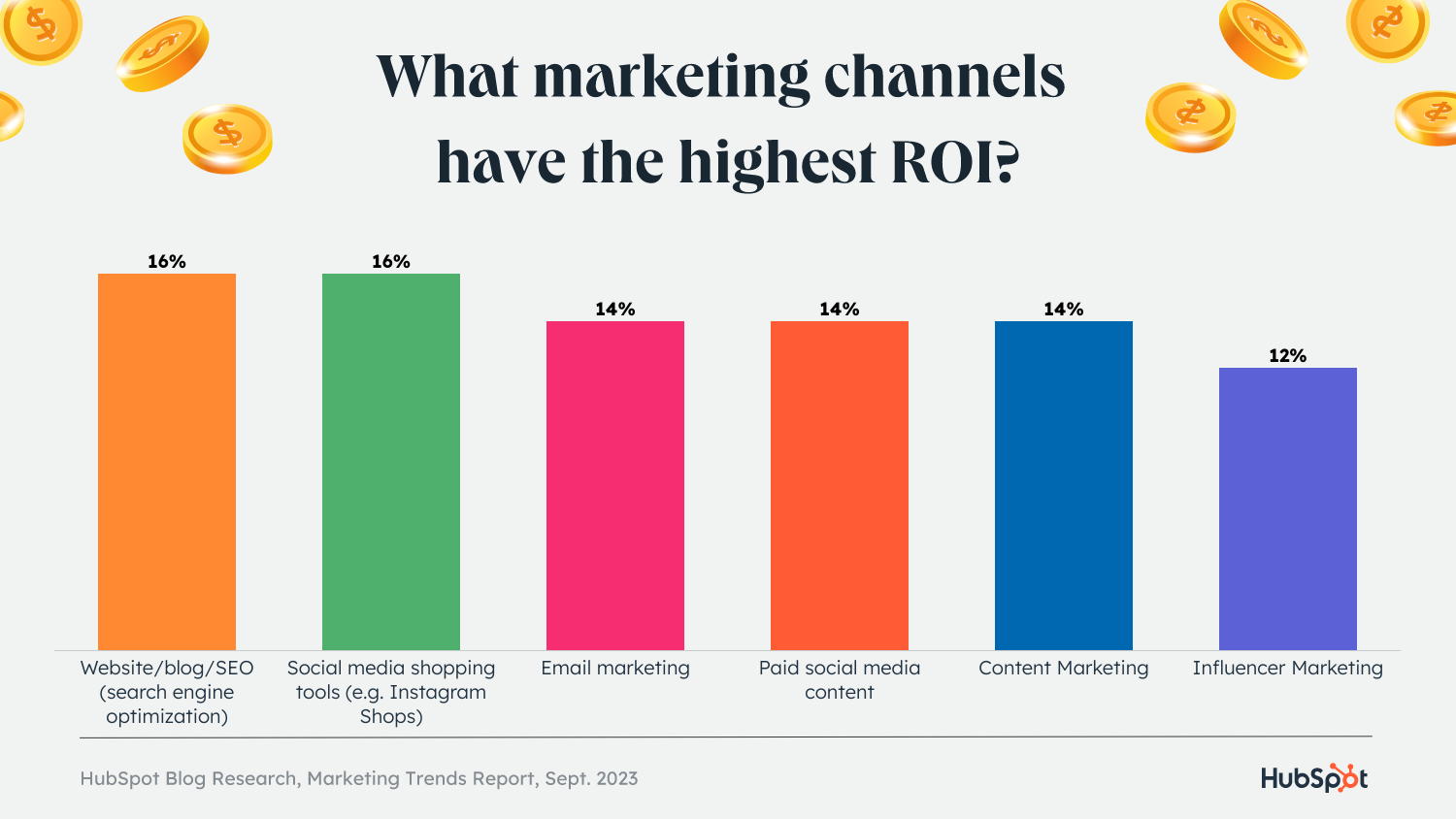
Marketers also show no signs of letting either channel go. When we asked marketers which channels they’ll invest the most in in 2024, website/blog/SEO came in second place, and email marketing followed right behind.
To go a bit deeper, 48% of marketers say they’ll increase their investments in SEO in the upcoming year, and a majority will continue investing the same amount in email marketing come 2024 (49%).
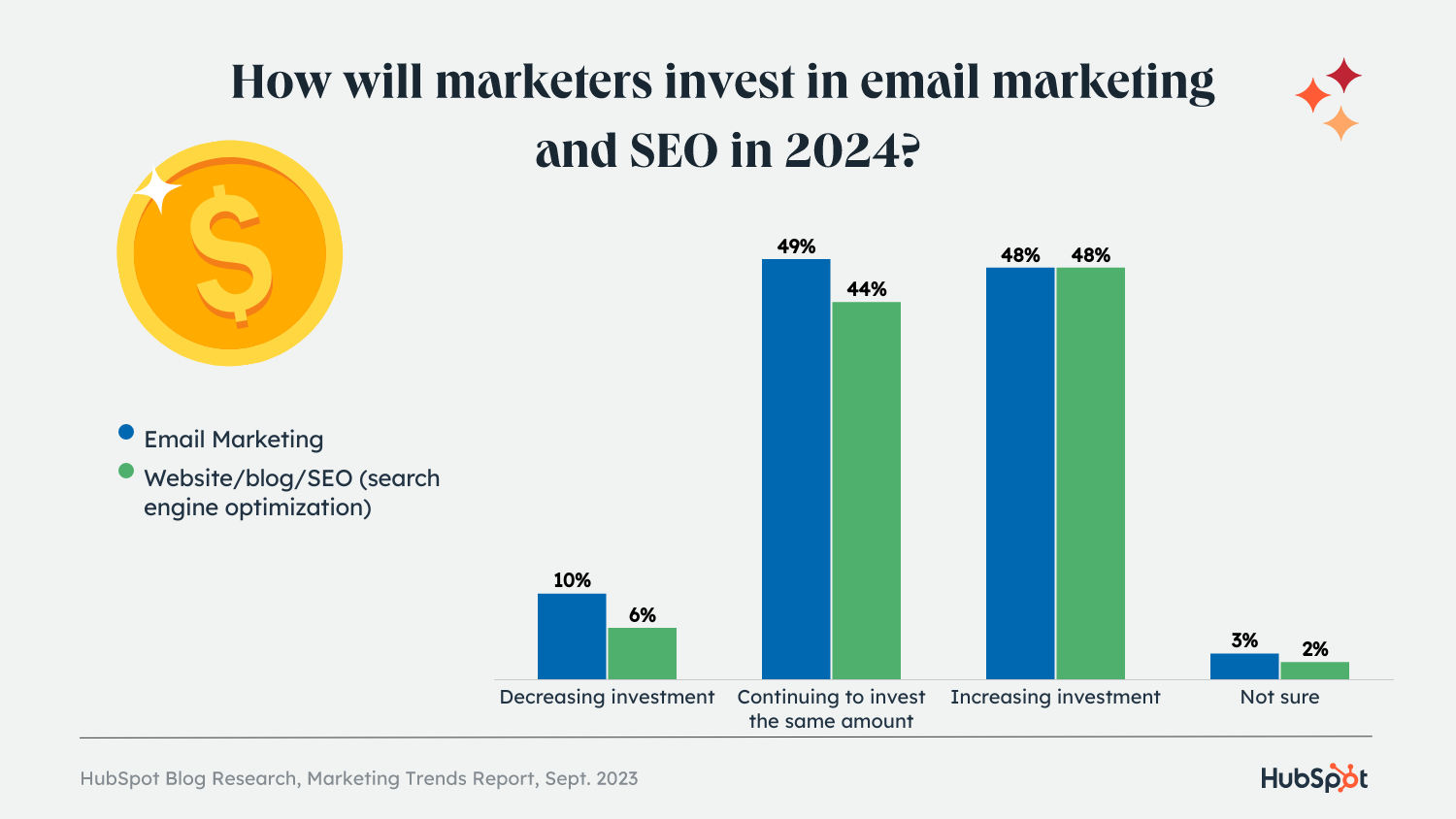
I attribute the increasing investments in SEO to Google’s addition of “experience” to the existing E-A-T framework (expertise, authoritativeness, and trust) and the upcoming Search Generative Experience (SGE). SEOs are likely pivoting and investing in new strategies in the face of these changes to ensure they’re putting their most experienced foot forward to rank in SERPs.
Email Marketing vs. SEO – A Comparison Against Marketing Goals
In the report I mentioned above, we also asked marketers about their goals in 2024.
The top goal is increasing revenue/sales, followed by improving the customer experience and increasing brand awareness/reaching new audiences. Marketers also want to increase engagement and drive traffic to their websites.
What better way to compare email marketing and SEO than to assess how each will help marketers meet their goals? Below, I’ll pit the two against each other and declare a winner for each of the top goals marketers have.
1. SEO wins in increasing revenue/sales.
Return on investment (ROI) directly relates to marketers’ top goal for 2024: increasing revenue/sales. Since marketers say SEO has the highest ROI of any channel they leverage, I’m handing this win to SEO.
2. Email marketing wins for improving the customer experience.
Improving the customer experience is the top-two goal for marketers in 2024. A pillar of any excellent customer experience is personalization, and email offers excellent personalization opportunities, so I’m declaring it the winner for this goal.
Yes, you’ll optimize your website to align with your audience’s needs and interests, but you can’t get as personalized as you can with email marketing. You can create specific segments for personalized targeting or even send individually customized emails on a customer-to-customer basis.
Just think about it — you’ve probably never visited a website on your birthday and seen a “Happy Birthday, [your name here]!” banner just for you, right? If you have, I’m impressed, but you probably get those personalized messages from your favorite brands over email.
Pro Tip: Use HubSpot’s Email Marketing Tool to tailor your emails to individual subscribers based on key characteristics, like lifestyle stage, and capture their attention with the most relevant subject lines, attachments, and CTAs.
3. SEO wins for increasing brand awareness and reaching new audiences.
SEO takes the cake in increasing brand awareness and reaching new audiences. Nearly 1 in 4 websites have an average SEO click-through rate between 10-19%, and direct traffic and organic search are the top traffic drivers to their website.
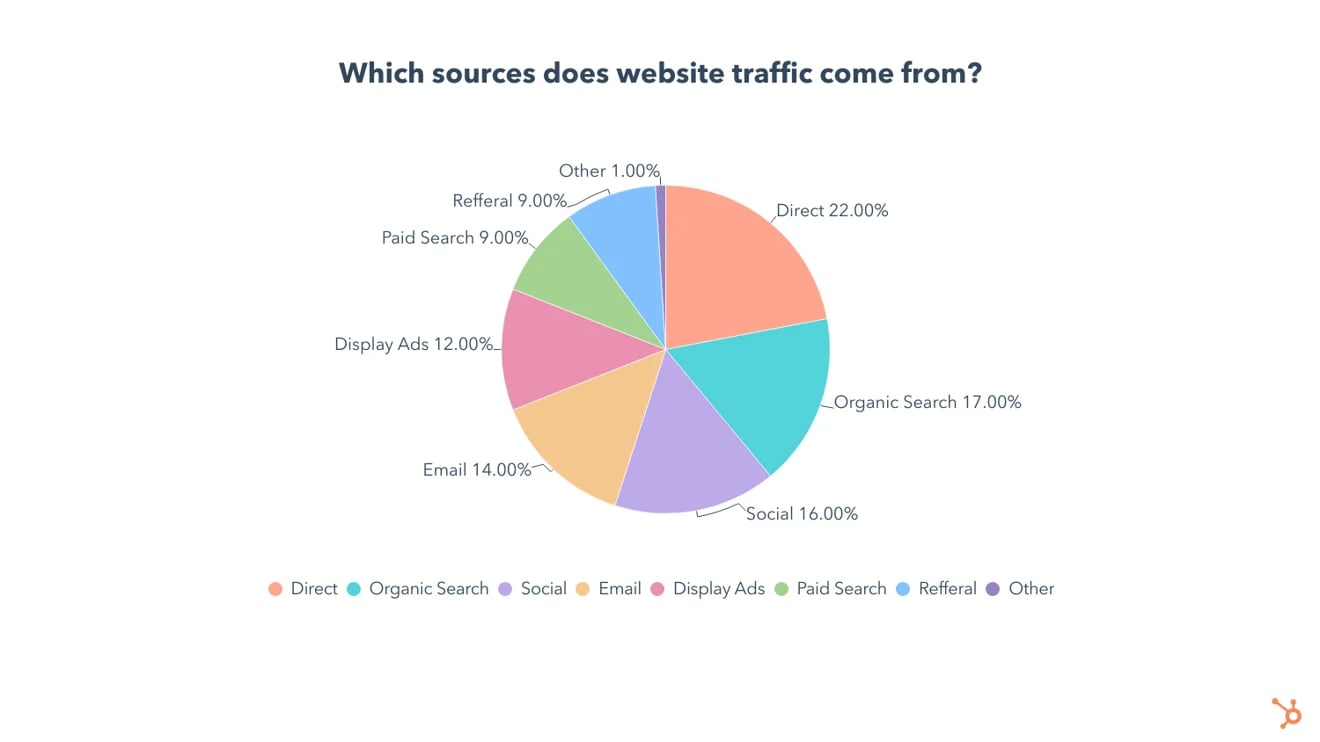
Your reach with the channel is significantly higher because anyone searching the internet using keywords related to your business or offers has the potential to discover you, which equals reaching new audiences.
Your emails are only sent to people who already know about your business and have chosen to receive your emails. While you certainly can reach new people if you purchase email lists, I can never recommend this practice over prioritizing SEO to reach new audiences.
4. Email marketing wins for increasing engagement.
I have to hand increasing engagement to email marketing. While you will undoubtedly drive traffic with SEO, there is no guarantee that all your visitors are qualified and ready to take their engagement with your business a step further.
Your email recipients are qualified leads who have opted in to receive your emails because they’re genuinely interested in what you offer. This genuine interest leads them to be more interested in your offers, which can inspire them to click through to your website to learn more about what you shared.
Email Marketing vs. SEO – The Verdict
I know you want me to give a final answer of one over the other, and I’m sorry to say that I can’t.
Focusing on one over the other should depend on your marketing objectives. If you want to increase brand awareness, dedicate more effort to SEO. To build personal customer relationships, spend more time on email marketing.
What I can definitively say is that the best marketing strategies have an omnichannel approach.
For example, I would recommend that a local business prioritizes email marketing when it comes to letting locals know about upcoming events, sales, or any business changes. I’d also tell that same business that they can’t forget about local SEO because an optimized Google My Business profile is the best way to get out in front of local searchers who haven’t discovered you yet.
If you’re struggling to decide, consider this: If you don’t want to take a combined approach, weigh your specific goals against the areas where email marketing and SEO shine and choose the one best suited to help you meet your objectives.
If you want to take a combined approach, weigh your specific goals against the areas where email marketing and SEO shine, and choose which one is your primary area of focus and which one will be there to support the other.
Whatever you decide, both channels are tried, tested, and true channels that will help you drive the growth you’re looking for.
![Download Now: Free State of Marketing Report [Updated for 2023]](https://no-cache.hubspot.com/cta/default/53/b0f73a5e-16e4-41fd-9511-8564efc560a7.png)




